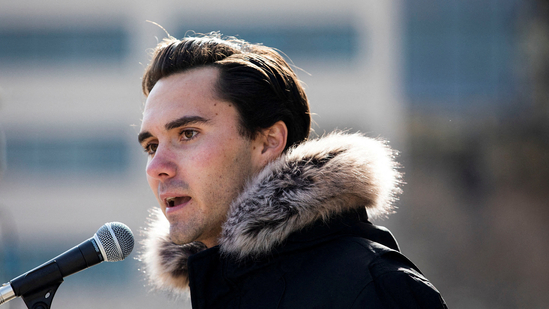The Democratic National Committee (DNC) is in turmoil after a decision made by its Credentials Committee. The committee decided that David Hogg and Malcolm Kenyatta were not elected correctly. They were voted in as vice chairs in February 2025. The issue is with alleged procedural infractions in the election process under gender diversity rules.
This decision has drawn controversy largely because Hogg has become a polarizing figure within the party because he has been vocal about supporting primary challengers against sitting House Democrats.
The Challenge and Its Roots
The February election contest was filed by Kalyn Free, an Oklahoma activist and unsuccessful vice chair candidate. She alleged the DNC violated its own rules meant to ensure gender balance for party leadership. In her complaint, the procedure used nearly guaranteed the election of both male candidates, disadvantaged female candidates.
The Credentials Committee agreed that the process was flawed. A fresh election can now be held, with just the original five candidates.
A Vote With Higher Stakes
Although the committee claimed its vote was strictly procedural, most view the ruling as politically driven. David Hogg has strained party relations with his $20 million bid to oust so-called “out-of-touch” Democrats in safe seats.
Hogg’s party, Leaders We Deserve, has pledged to endorse progressive primary challengers. Opponents, even senior Democrats, claim this raises a question on party unity. DNC Chair Ken Martin publicly declared in favor of stating party officers must remain out of primaries.
Hogg Fires Back
In a release, Hogg declared the ruling to be more than procedural. “This vote is clearly about my efforts to reform the party,” he said. “I ran to make the Democratic Party better—not to preserve a broken status quo.”
He argued that previous DNC vice chairs have endorsed primary challengers with ease. Hogg believes his reform platform is being stifled by party regulars who resist change.
Despite the move, Hogg and Kenyatta are retaining their seats at the moment and can re-qualify to run again if the election is reattempted.
Also read: Apple Lawsuit Settlement: Apple to Pay $95M—Claim Up to $100 Per User
Kenyatta Response
Malcolm Kenyatta who is the second vice chair to be impacted has completely rejected the narrative that the outrage is solely over Hogg. He was angered by the committee’s move. And, he called it “a slap in the face.”.
Kenyatta is a respected Democrat and he has warned that a re-vote would be all the more complicated. He argued that the DNC membership updates after February would make the new vote unfair by default and disenfranchise candidates who did not make the cut.
Debate Over Election Rules
At the committee hearing, parliamentarian Daniel Seabold, the parliamentarian who supported Free’s challenge, asserted the DNC’s process was treating male candidates in an unfair way. Hogg’s attorney, Graham Wilson, agreed the process was “messy” but contended that it was inside DNC rules.
The committee’s first vote is to throw out the challenge and handle split along party lines, with no decisive outcome. The second vote, which was edited for brevity, voted 13-2-3, for-opposed-abstained.
Larger Political Context
This incident shows increasing rifts within the Democratic Party. Younger activists like Hogg are calling for more radical reforms, and old guard leaders desire caution and coalition politics. The party is now torn between reform and tradition.
Veteran strategist James Carville was initially very harsh on Hogg but later realized that the DNC needed his youth and vision. This shows the complicated dynamics involved.
What’s Next?
It’s now in the hands of the entire DNC membership to vote on whether to accept or reject the committee’s recommendation. If approved, there would be a new election. A new head can alter not just leadership, but the future direction of the party as well.
Controversy stokes debate about openness, intra party democracy, and dissent in party politics, at least temporarily.








